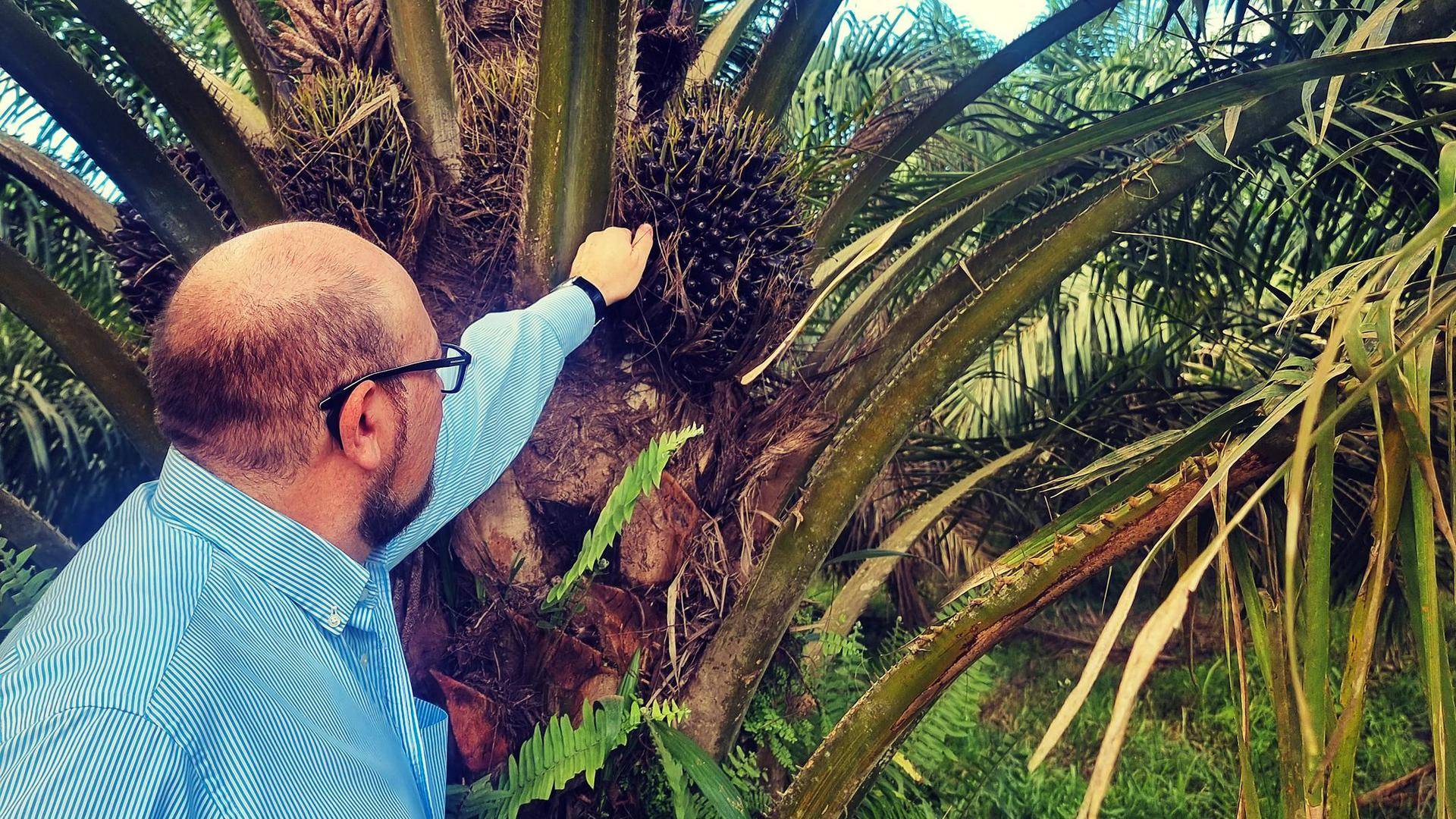We use Cookies. Read our Terms
- News
- How the OPEC Fund is Helping Farmers in Latin America to Boost Sustainable Agriculture
How the OPEC Fund is Helping Farmers in Latin America to Boost Sustainable Agriculture
The region has the potential to make a sizeable contribution to alleviate the current food supply crisis

Photo: OPEC Fund/Luiscela Moreno
The world is urgently looking for ways to defuse the current food supply disruptions. Latin America and the Caribbean could hold at least one of the keys: According to the UN Food and Agriculture Organization (FAO), the region produces enough food to feed 1.3 billion people – twice the size of its population. Growing attention is paid to sustainable agriculture and the OPEC Fund is at the forefront of supporting these efforts.
One example is an eco-friendly palm oil plantation in the Dominican Republic. Located in Bayaguana, a municipality in the Monte Plata province, the site is owned by De Plata, a local company founded by migrants in 2014. The development benefitted from a US$25 million loan the OPEC Fund provided to the Latin American Agribusiness Development Corporation (LAAD) in 2019 for on-lending to local enterprises.
On a recent mission, OPEC Fund Private Sector Acting Senior Investment Manager Luiscela Moreno was able to see the project in operation. “Despite the fact that agriculture is the fourth largest economic sector in the Dominican Republic it is underserved and lacking access to financial resources and technology,” she reports. “The mobilization of private sector funds is key to sustainable production and agricultural exports. LAAD has contributed to create opportunities for rural people through a dedicated financing window. It is rewarding to see the outcome and benefits of the OPEC Fund’s activities.”
The farm in Bayaguana has over 700 hectares, 80 percent of which are in active production. The plantation is located in an impoverished rural area inhabited by many migrants, especially from neighboring Haiti. De Palma has created 40 permanent positions and about 80 non-skilled jobs on a regular basis for fruit collection. The plantation adds significant value as its products reduce the country’s reliance on imported palm oil, 80 percent of which stems from abroad.
An edible vegetable oil that comes from the fruit of oil palm trees, palm oil is extremely versatile and has numerous properties and functions that make it so widely used. Palm oil is used as a cooking oil in many Asian and African countries and could serve as an alternative to sunflower oil, the global supply of which has been severely disrupted by the invasion of Ukraine.
Despite its many attractive features large-scale production of palm oil has come under serious criticism as a major driver of deforestation and the destruction of habitat of already endangered species. De Palma is addressing these issues head-on. Javier Urdaneta, the owner and general manager, has implemented environmentally friendly practices such as a ban on pesticides, the reuse of waste and the use of organic fertilizers. Deforestation is kept to a minimum and restricted to limited areas.
De Palma is using the OPEC Fund financing to expand sustainable practices in the plantation’s business activities. Everything can be utilized from fruit to palm oil as well as the residuals of processing, which are used for animal feed. This circular economy approach creates new revenue streams. For recognition of its commitment and achievements the company has applied for certification from the “Roundtable on Sustainable Palm Oil”, a global, not-for-profit organization bringing together stakeholders.
Building on the successful development of De Palma, LAAD recently provided a new loan to the company for the construction of an oil extraction plant, which is expected to become operational in the second quarter of 2023. The plant is designed to power the entire operation with any surplus injected into the national grid.
Latin America and the Caribbean has traditionally been a priority region for the OPEC Fund and commitments exceed US$3.5 billion to date, with around 10 percent of loans and 25 percent of grants supporting sustainable agriculture. According to FAO, the agrifood sector generates between 9 and 35 percent of GDP in the countries of the region and represents 25 percent of exports.